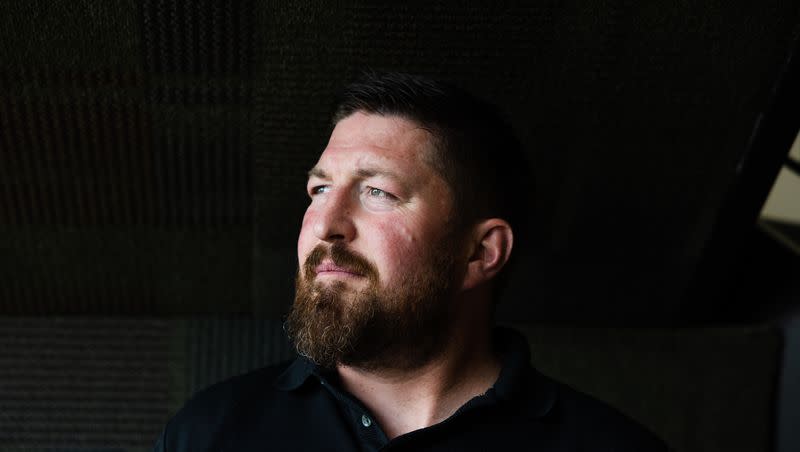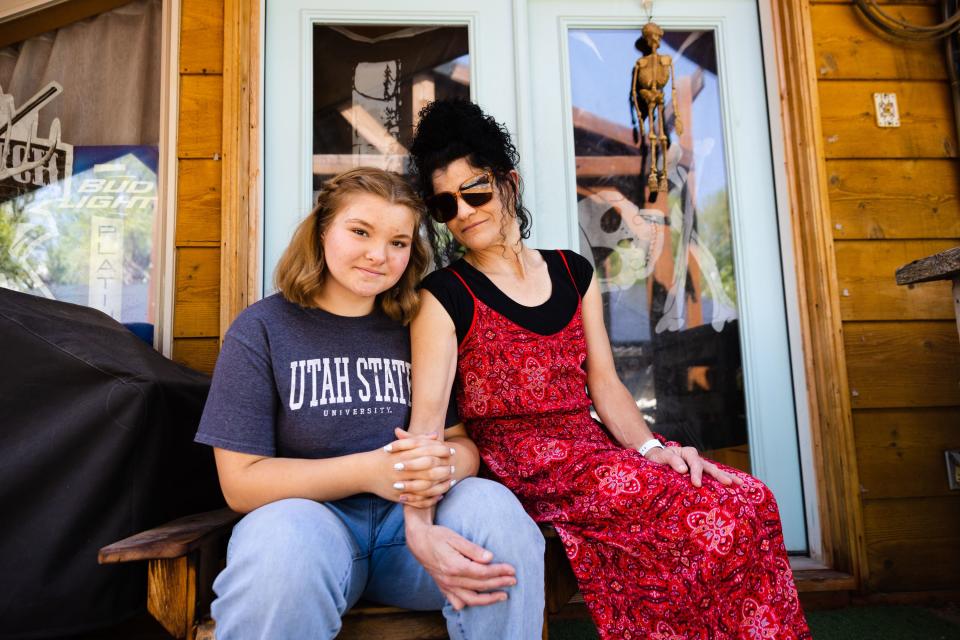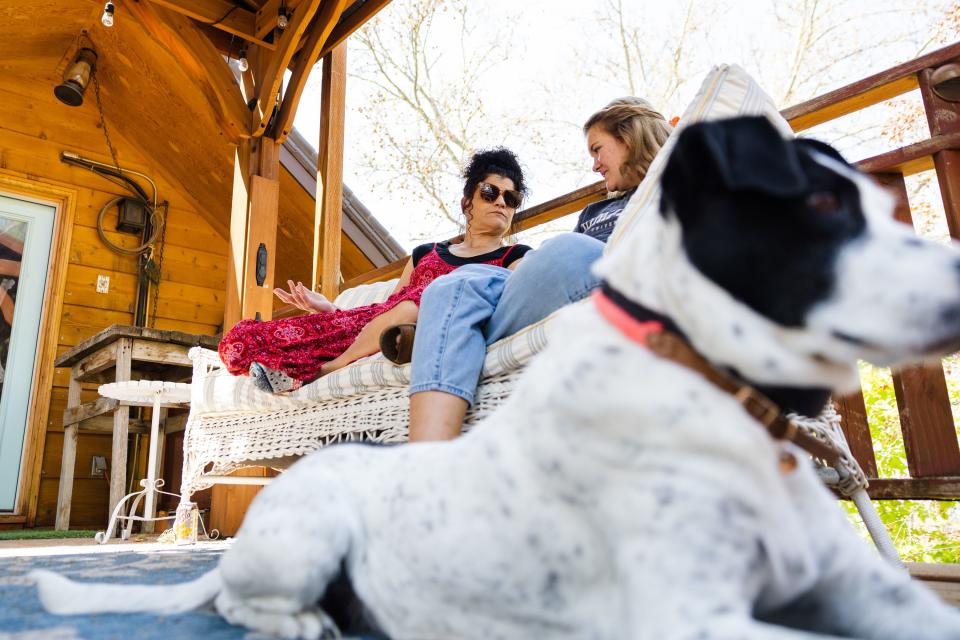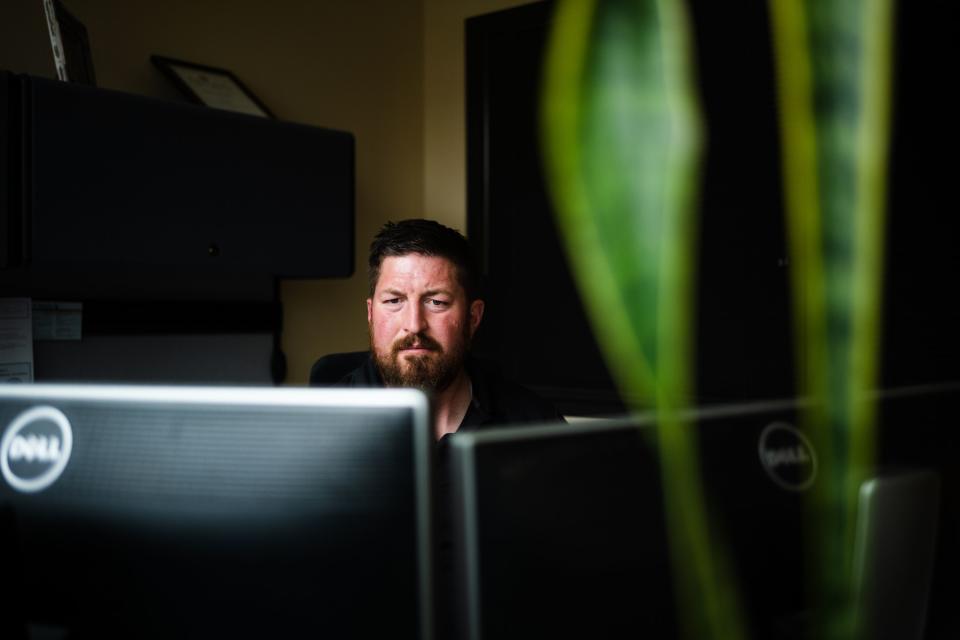Why this graduate program in Utah is among the highest ranked in the nation

For Josh Riddle, earning a master’s degree from Utah State University’s rehabilitation counseling program was a springboard to career advancement.
Equally important, it prepared him to better serve clients of the Utah Department of Workforce Services Office of Rehabilitation, an agency that has helped him succeed in life, as a student and as a working professional.
When USU’s rehabilitation counseling master’s degree ranked sixth nationally in the latest U.S. News and World Reports college rankings, Riddle said he was not at all surprised. The program received the highest ranking among all graduate programs in the state of Utah this year.
“The professionalism, the mindset of the whole crew up at Utah State and the educators up there was second to none. I was just blown away by their knowledge, by the information that they gave, just everything in general,” said Riddle, who graduated in 2021.
For Riddle, earning his master’s degree in rehabilitation counseling brought him full circle. He works with clients with disabilities, helping them to be successful in life and employment. He knows how important that is because he was a vocational rehabilitation services client himself due to disabilities that affect his spine and arms. The agency helped him navigate earning a bachelor’s degree at Utah Valley University.
“The thought process of helping folks with disabilities, both mental and physical, on both ends of the spectrum — I love it. I love the work that we do and the training that I was able to get,” he said.
Trenton Landon, associate professor in the Department of Special Education and Rehabilitation Counseling, attributes the graduate program’s success to the strong underpinning of USU’s Emma Eccles Jones College of Education and Human Services, which is among the top-ranked education colleges in the Intermountain West and well-regarded nationally.
“The college in and of itself is really doing a good job and that we’re housed within that.” said Landon.
The rehabilitation counseling program, which is largely offered online, prepares students at the master’s degree to “assist persons with physical, mental, developmental, cognitive, and emotional disabilities to achieve their personal, career, and independent living goals,” its website states.
Landon said it is also validating that peer institutions recognize the rehabilitation counseling master’s degree program’s work, he said. “So this is our peers in the industry saying hey, ‘This is a pretty solid program,’” he said.
The program is supported by “more faculty than we’ve ever had,” Landon said, which is “indicative of the support of the college and then by extension, the Legislature and everything that approves those faculty lines.
“Because of that, we have more people to work with students, more people to conduct research, to do outreach and build a clinic here on campus focusing on chronic illness, disability and adjustment,” he said.
The program typically attracts nontraditional students, many of whom are working adults juggling school, careers and busy personal lives.
“That’s why we teach most of our classes in the evening, late afternoon and evening and try to accommodate their work schedules. So they have been working all day and then they come and join us in class sometimes until almost 9:30 at night. I give it to them, it’s not easy,” he said.
There are 15 to 20 students in each cohort, Landon said. Some learn of the program while working with people with disabilities in a variety of state agencies and schools, some students are people with disabilities themselves and still others are seeking a counseling degree to pivot into another career.
While many people tend to think of disability as related to physical challenges, Landon explained that “disability is a broad encompassing term under the ADA (Americans with Disabilities Act) and it was meant to be that way. Our viewpoint is, mental health falls under that and we see mental health as the fastest growing disability in the United States, both in terms of work hours lost, and requests for ADA accommodations as a result of mental health.”

Zoey Hoover, 14, has received counseling at the on-campus Clinical Rehabilitation Counseling Center, which is staffed by faculty and master’s degree candidates who are supervised by licensed counselors and therapists.
“I started therapy because my grandma passed away and she was like my best friend and I was really struggling with that. So I just thought it would be good to have someone to talk to and it definitely was. It has definitely helped me with going through all the emotions of losing a loved one, for sure. And I have severe anxiety and severe depression so that it also helps with that,” she said.
Hoover, who has spent the last year attending school online, recently registered for high school, which she’ll attend in person. She said she feels like she’s in a good place emotionally to take the next step, having worked on issues of trust, anger and anxiety in a place where she feels safe and heard.
“I think counseling really helps with being able to work on yourself. I think it also helps you stay accountable to your goals and even say, ‘Oh, like I messed up. I messed up on a goal.’ It’s not like, ‘Oh, you’re horrible.’ It’s like, ‘Oh, that’s OK. Let’s keep working towards this.’ I think that’s what’s so amazing about it,” she said.
Her mother, Autumn Hoover, who is a licensed mental health counselor and a certified rehabilitation counselor, is a clinician with the Clinical Rehabilitation Counseling Center.
Hoover, who is seeking her doctorate degree, said she has experienced USU’s rehabilitation counseling program from the perspective of a loved one whose family members have received counseling services there, as a graduate student and also a clinician.

“I think the reason it’s so awesome is because the people who run it and everybody that works there — and it’s not just a philosophy for the clients — it’s their lived philosophy of care, understanding and acceptance,” she said.
Riddle, who earned his master’s in rehabilitation counseling from USU, said his training has enabled him to better connect clients with disabilities with resources, employment and other opportunities that enhance their quality of life and support them in securing work that is fulfilling and pays a living wage.
According to the Bureau of Labor Statistics, people with disabilities are much less likely to be employed than those with no disability, which holds true across all age groups.
Also, the unemployment rate for people with disabilities is about double the rate for persons without a disability, according to the bureau.
Education plays a key role in outcomes, according to Bureau of Labor Statistics data. People with disabilities are less likely to have completed a bachelor’s degree or higher than were those with no disability.
But among both groups, those who had attained higher levels of education were more likely to be employed than those who had attained less education, but those without disabilities still fare better.
It’s why Riddle takes pride in helping connect people with disabilities with meaningful work in industries that they may not have ever considered as options.
“We get quite a few clients that go in for CDL (commercial driver license) training,” he said. “There’s a lot of job opportunities available and folks can make a pretty decent wage.”
The challenge — and the joy — is connecting a client seeking a job with a salary that enables them to get off government disability payments, Riddle said.

“A lot of what we do is assisting people and not just the low-hanging fruit that anybody can go out and get this job or that job, but trying to get strategic in placing these folks with disabilities in a position that that they may not know about, or that might be a little bit more difficult to get and getting that leg up or having specific training for a long-term, successful outcome. Those are the ones that I personally take a lot of joy in,” he said.
Landon said rehabilitation counseling is an offshoot of the Veterans Administration’s response to serving veterans returning from World War I.
“Over time, it formalized into where we’re at now, but it was primarily physical disability driven,” he said.
Professionals now understand a holistic approach is needed to adjust to the physical impacts of disability but also, related mental health issues.
“It’s not just addressing the physical need, but especially with veterans, there’s oftentimes PTSD associated with it,” he said.
“Maybe a more contemporary example might be a primary breadwinner in the home that’s worked for 20 plus years, gets in an auto accident and is no longer able to continue in the employment that they had. So now as a result of that they have potentially some physical limitations, but also then the loss of a work identity, the loss of a provider identity, and all of these other things that oftentimes lead to depression to anxiety,” Landon said.
Landon said USU’s rehabilitation counseling master’s degree program trains students to consider their clients’ needs holistically.
While they are not health care providers, they straddle a middle ground where they need to understand disability from a medical and physical standpoint but also need to be mindful of the mental health effects of disability, whether it is a lifelong condition, the result of an accident or chronic illness.
“We balance the two so that when we reintegrate, it’s very holistic,” he said.
“How can we fully help them integrate into society with everything that might be a concern for them?”
Or as the program’s website puts it, graduates of USU rehabilitation counseling program will be educated and trained to “help adults take control of their lives.”

